
CPT’s outstanding service dog program has been featured in the New York Times best-selling book Doctor Dogs and recognized nationally by People Magazine.
CPT custom trains service dogs for wheelchair bound, neurologically impaired, orthopedically impaired, hearing impaired, and psychologically disabled clients. CPT also trains assistance dogs for children with autism. A CPT custom trained service dog can significantly improve the recipient’s quality of life.
By improving candidate selection and providing superlative training CPT produces unmatched outcomes that greatly improve quality of life for our clients.
CPT Physical Assistance Dogs open and close doors, open and close refrigerators, turn on and off lights, retrieve items from the floor, answer telephones, carry objects, assist in pulling wheelchairs up inclines or rough terrain, assist in transfers, assist in balance and walking, provide a distress signal, and seek human caretakers during emergencies.
CPT Hearing Assistance Dogs identify the sound of an alarm clock, doorbell, door knock, fire alarm, telephone, baby crying, or other sounds important to the specific client, then alert the client and respond accordingly.
CPT Autism Assistance Dogs prevent a child from bolting via usage of a dual-tethering system and can aid in locating an escaped child should the child become separated from the dog or escape while accompanied by the dog. Autism assistance dogs also facilitate social contact with third parties and may reduce the frequency, duration, and severity of recipient stereotypical behavior, asocial behavior, and/or tantrums.
CPT Psychiatric Service Dogs reduce the frequency and severity of depressive episodes, perform behaviors automatically and/or on command that reduce the frequency, severity, and/or duration of panic attacks, provide a buffer from crowds, facilitate social interaction, and bolster general relaxation and confidence. When, requested, they can also perform other specialized behaviors, such as room searches and turning on lights.
CPT Seizure Response Dogs perform a bracing behavior that prevents injury from falls and communicate an emergency situation to passers by. CPT Seizure Dogs may also alert to a seizure pre-ictally, so that the recipient has ample time to assume a safe position.
Since each client program is custom designed, please contact the CPT office by e-mail or phone (541 200-0380) to receive a preliminary program design and/or cost estimate.

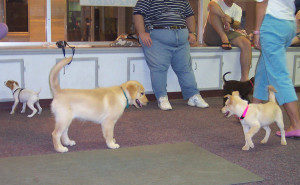
In addition to operating our own service dog program, for almost two decades CPT has operated the Atlanta-area Puppy Raiser Classes for Canine Companions for Independence (CCI), the nation’s largest and most respected nonprofit service dog organization. Furthermore, CPT President Mark Spivak’s company Dog Star Technologies, in partnership with CCI, conducts government contracted canine neuroscience and behavioral research designed to improve the selection and training of service dogs. Below are some photographs of a recent CPT-CCI Puppy Raiser Class.
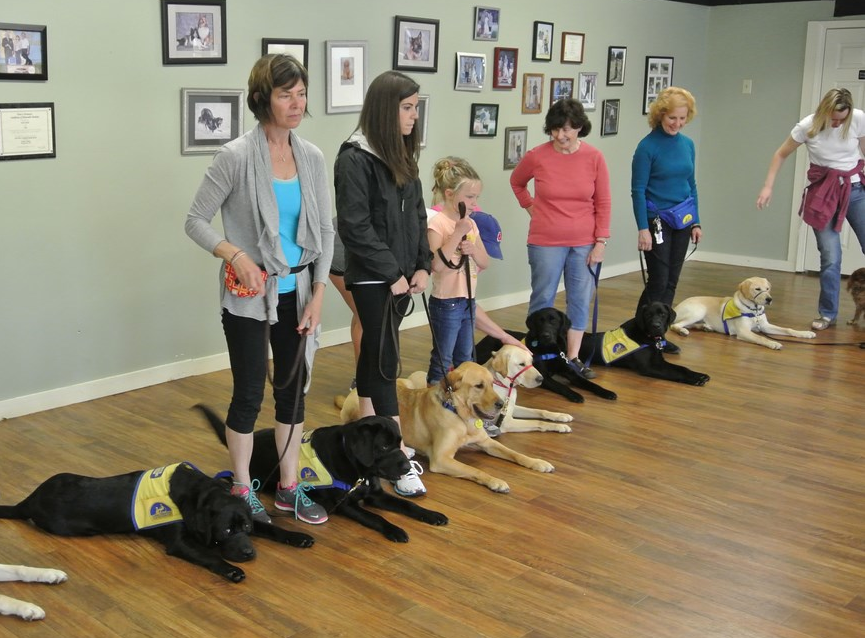
CPT service dog trainer Patricia King coaches the CCI puppy raisers to place their dogs in a group down-stay.
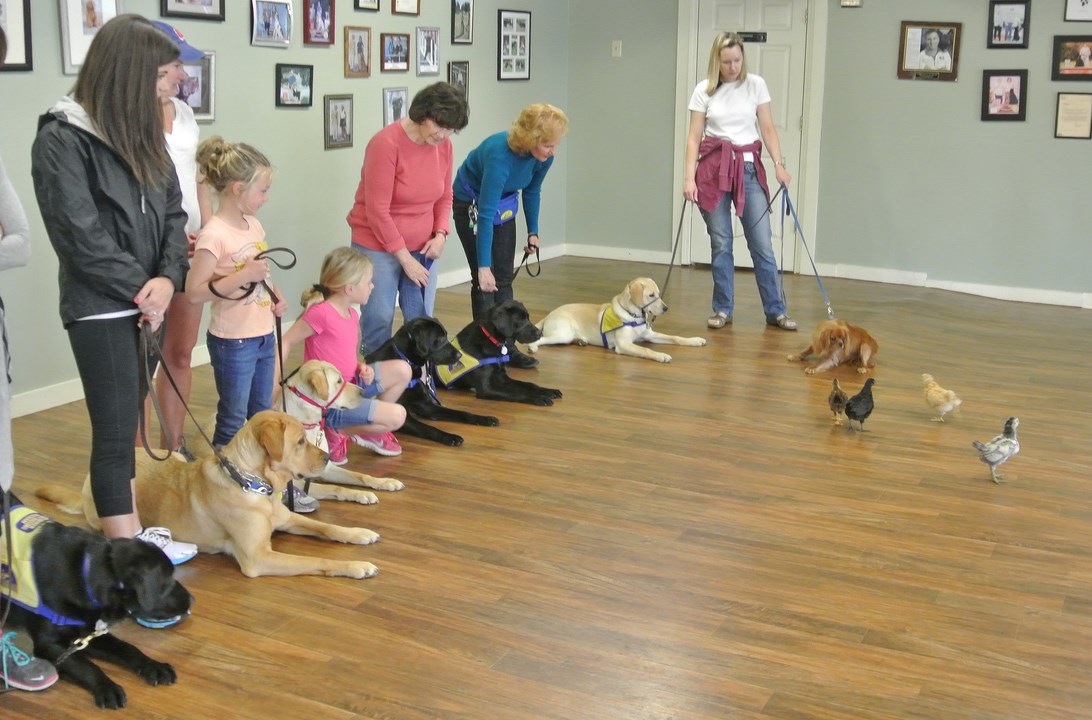
Now the down-stay becomes more difficult, as we add some live chickens to the room.
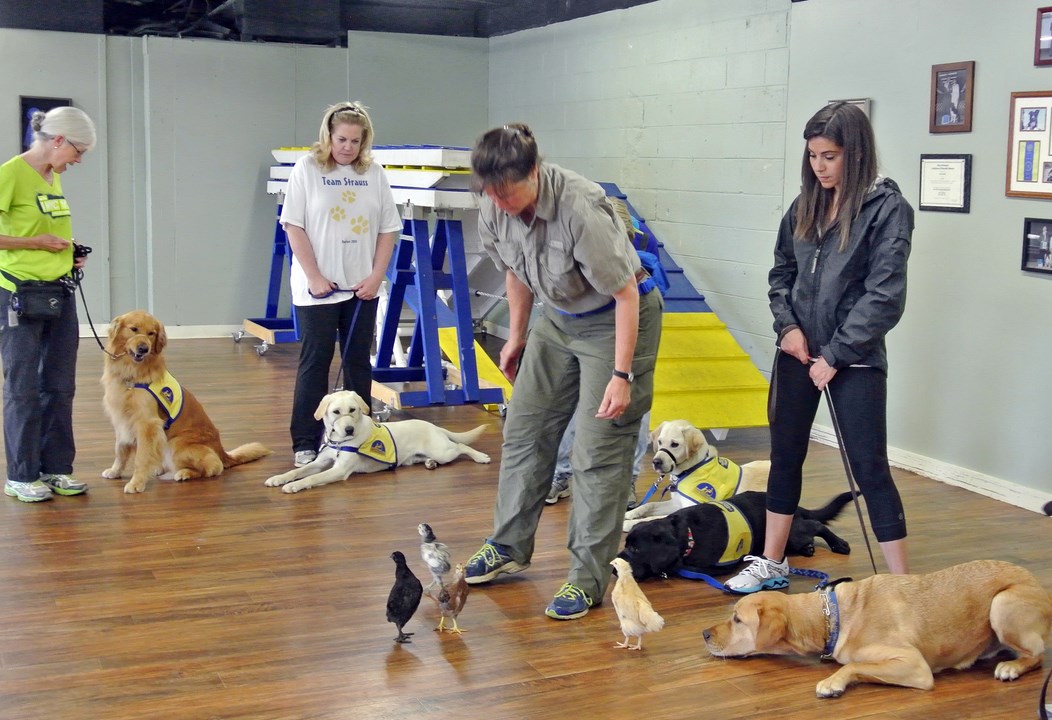
Before CPT or CCI approve candidate animals as full-time working service dogs they must remain calm, composed, confident, cooperative, and focused on-task, regardless of the environment and regardless of the distractions present in the environment.
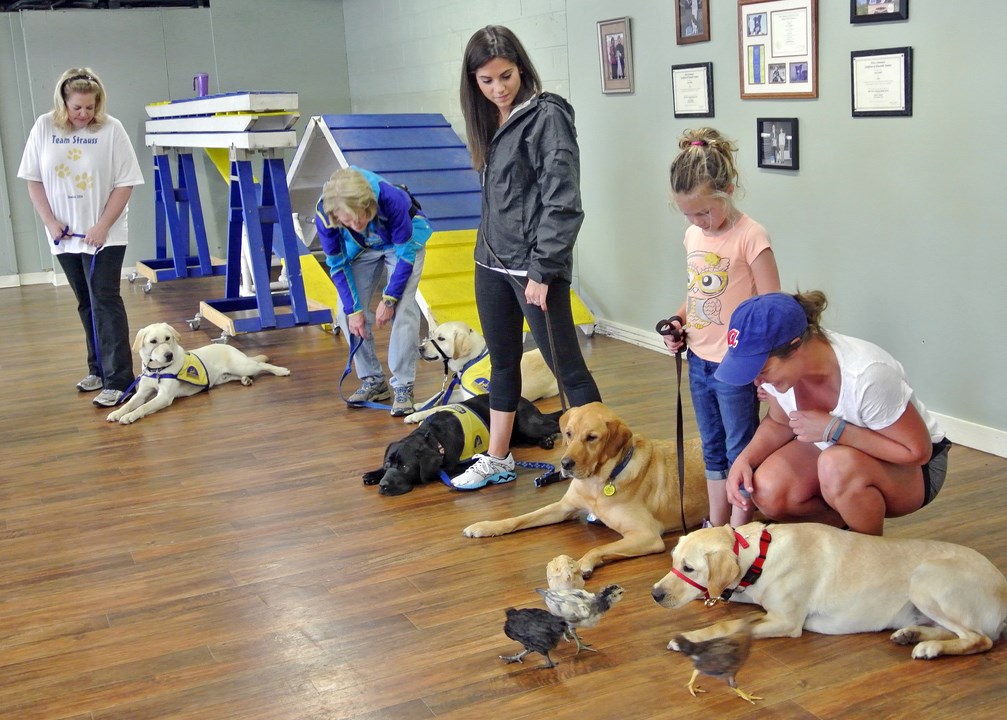
To responsibly perform amidst full public access, service dogs need to reliably act with equanimity in any public, private, commercial, or residential setting.

The CPT service dog program and the CCI Puppy Raiser Class includes conditioning drills to train the dogs to remain calm, composed, confident, and on-task regardless of the floor or ground substrate, vehicles, or objects present in the environment and regardless of whether the environment contains unfamiliar persons, dogs, cats, or wildlife- even chickens!

A display of out-of-context anxiety, aggression, or excitability disqualifies a dog from working as a public-access service dog.
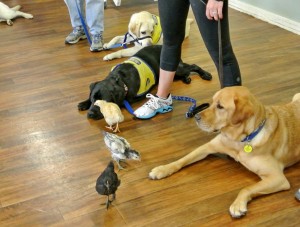
Furthermore, service dogs need to have a subordinate temperament, where they will easily cooperate with a disabled or a juvenile handler. Therefore, the evaluation process is frequently as important as the training part of the program.